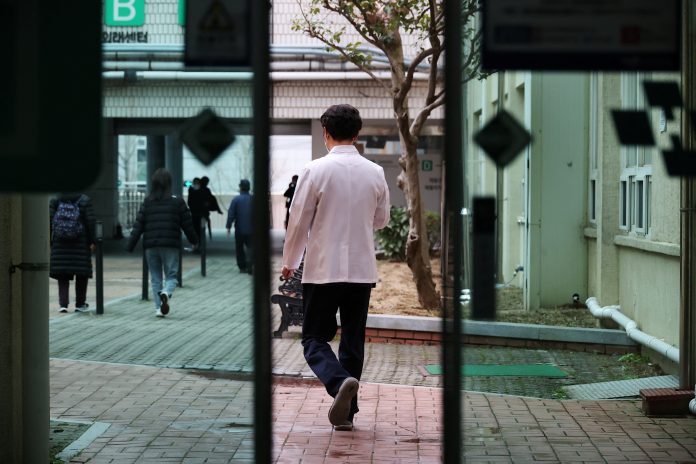Thousands of trainee doctors at South Korea’s major hospitals went on strike on Wednesday (Feb 21) to protest a plan to admit more students to medical schools, disrupting treatment for dozens of patients, health officials said.
The South Korean government wants to increase medical school admissions from 3,000 currently to 5,000 in the 2025 academic year and then add another 10,000 by 2035 in a bid to bolster healthcare in remote areas and cope with the growing needs of one of the world’s fastest aging societies.
Doctors and medical students who joined the protest argue that South Korea has enough doctors and authorities should first improve pay and working conditions, especially for specialists in complex fields such as paediatrics and emergency medicine, before recruiting new students.
Park Min-soo, deputy health minister, urged protesters to put their patients first rather than collective action.
The protests by medical professionals began earlier this week. The Health Ministry said that so far a total of 7,813 doctors have left their jobs in defiance of the government’s order for them to stay on the job. The doctors claim that the order is unconstitutional. Park told reporters:
“I’d like to say once again that the basic calling of medical professionals is to protect the health and lives of the people, and any group action that threatens that cannot be justified.”
Many emergency rooms are overcrowded because of the strike, and five major hospitals in Seoul have cancelled between a third and half of scheduled surgeries.
Some 76 percent of South Koreans support the government’s plan to increase the number of medical students, a Gallup Korea poll showed last week, amid concerns about severe staff shortages in paediatrics, emergency rooms and clinics outside greater Seoul.
South Korea, which has a population of 52 million, has 2.6 doctors per 1,000 people in 2022, well below the average of 3.7 doctors in Organisation for Economic Co-operation and Development (OECD) countries.
